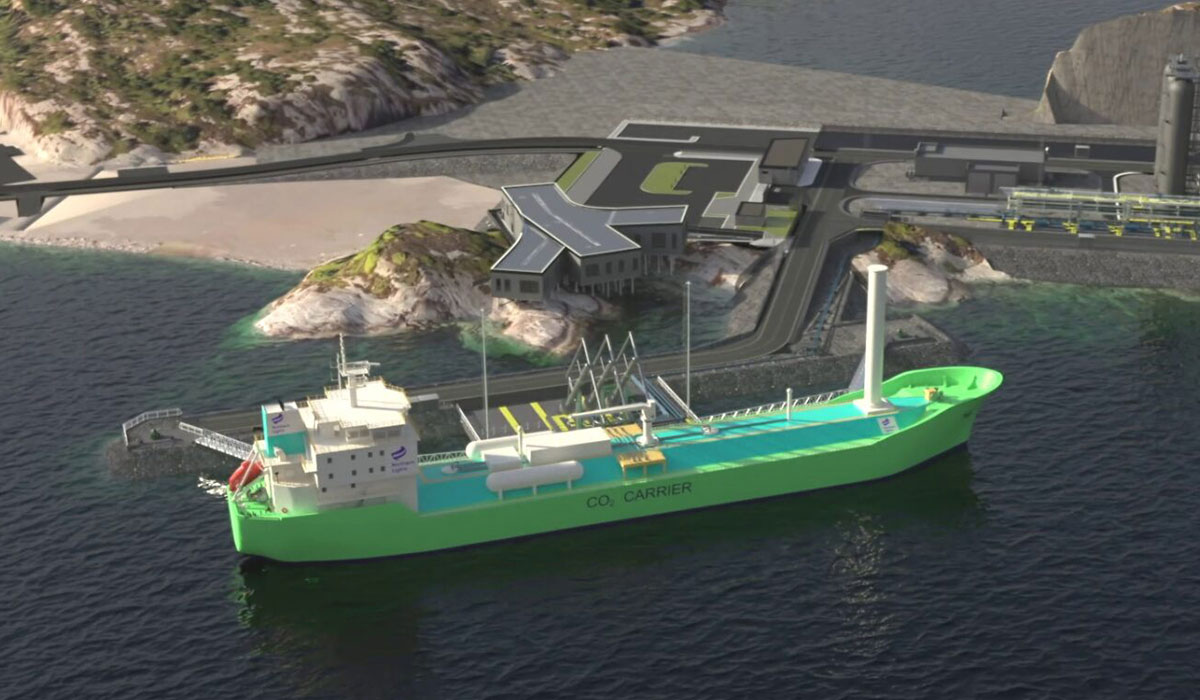As carbon capture and storage increasingly
become a crucial component of our clean-energy future, scaling up this
rapidly-evolving technology has climbed to the top of government climate
agendas. Currently, only two dozen large-scale CCS facilities are in operation
globally, and some 2,000 are needed to meet sustainable development goals
— meaning a 100-fold increase between now and 2050.
The good news is that both private and public
investment into CCS has risen sharply in the past few years, with major
projects underway in several countries. One of the most notable is found in
Norway, where the government last year approved funding for “Northern Lights” —
the world’s first cross-border, open-source CO2 transport and storage
infrastructure network.
- Northern Lights is the transport
component of Longship an 80% publicly-funded CCS project — the biggest
one in Norwegian history — that includes capturing CO2 from industrial sources
in the Oslo-fjord region. From there, the $760-million Northern Lights
infrastructure — featuring partners Equinor, Shell and Total — will be
used to transport liquefied CO2 by pipeline to an offshore storage location
subsea in the North Sea, where it will be for pumped down to a sealed reservoir
2,600 metres below the seabed for permanent storage.

- The first phase of the project, with a capacity of up to 1.5 million tons per year of CO2, is scheduled to be
completed by mid-2024. Northern Lights will then offer other European
industrial emitters the opportunity to store their CO2 underground, with the
hope that by enabling a full-scale CCS value chain in Europe, it will pave the
way for similar projects and the scaling up of existing ventures in the future.
- Chinese yard Dalian Shipbuilding
Industry Company (DSIC), recently won a contract from the Equinor-led jointventure to build two LNG-powered carbon dioxide carriers — the first
of their kind — to transport greenhouse gas from European industrial emitters
to the receiving terminal in Oygarden, western Norway. The vessels are
scheduled for delivery in 2024 and will each measure 130 meters in length, with
a cargo capacity of 7,500 cubic metres. In addition to being powered by LNG,
the vessels will also incorporate a wind-assisted propulsion system and air
lubrication in order to reduce carbon intensity by around 34% compared to
conventional systems.

ENGIE EXPERT’S EYE
Samuel Saysset, Lead Techno Advisor and ENGIE
Global Expert explains why the Norwegian project could be a game-changer: “Northern
Lights is a government-led Norwegian CCS project and could be the first of its kind
to emerge in Europe. Even if ENGIE doesn’t aim to become a player in CO2
transport and storage, it is interesting to see the sector develop, and these
players could potentially support certain ENGIE sites, such as thermal power
stations in northern and northwestern Europe, as well as help industrial
customers to reduce CO2 emissions. This is probably the subject closest to the
business (order from Equinor to DSIC).”

